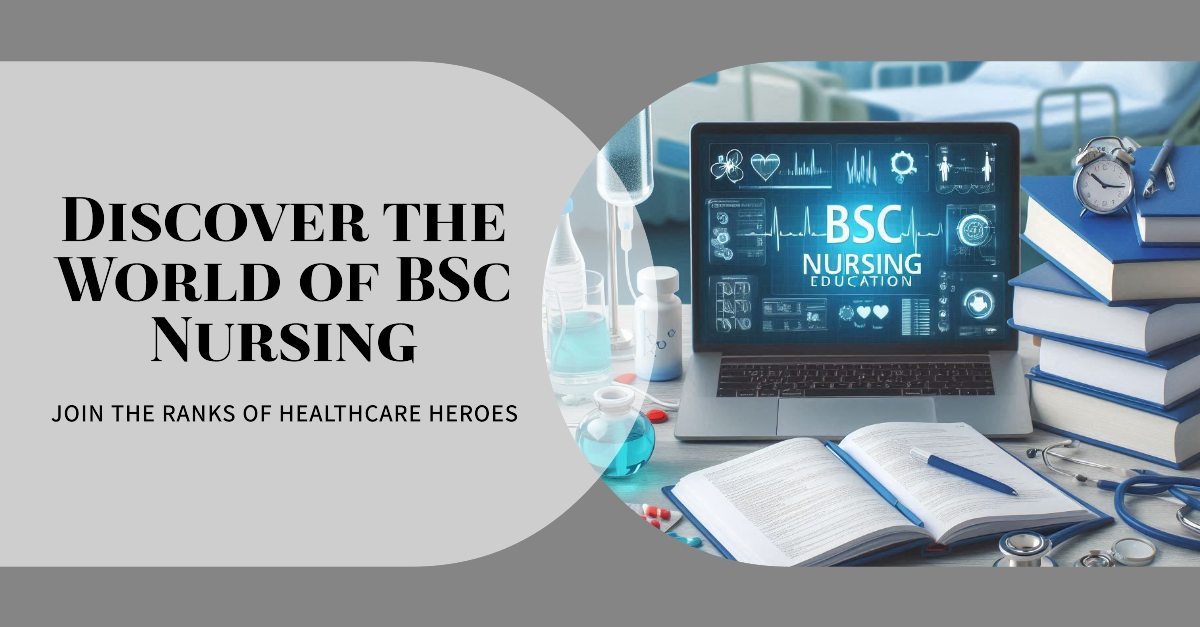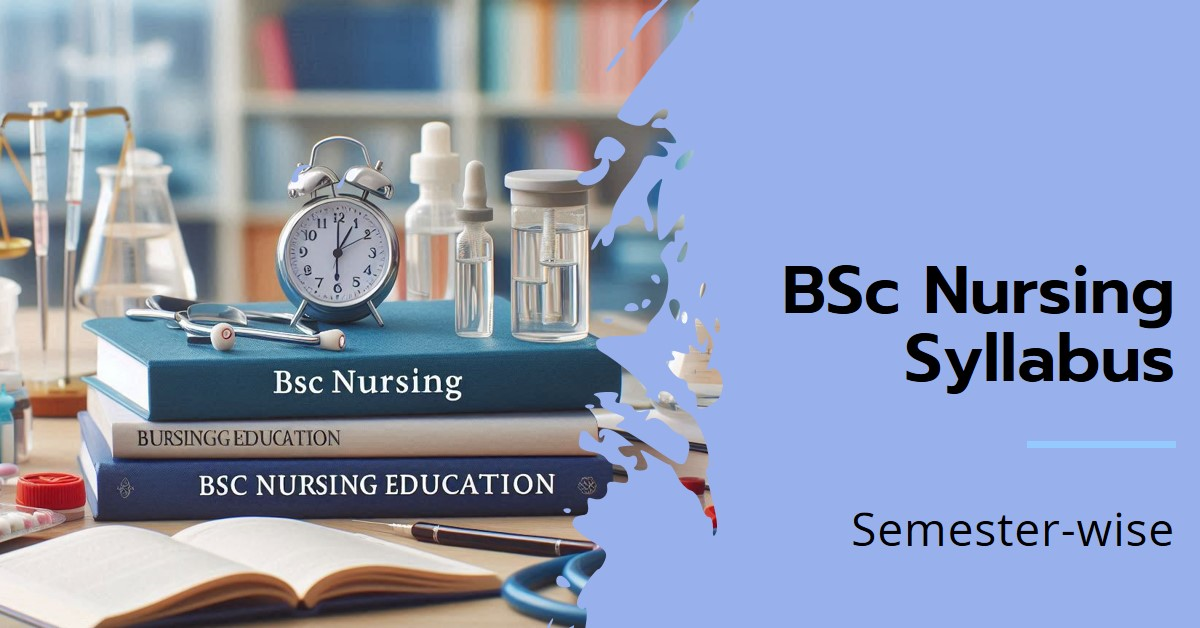The healthcare industry continually evolves, making qualified nursing professionals more essential than ever. A Bachelor of Science in Nursing (BSc Nursing) is a comprehensive educational pathway designed to equip aspiring nurses with the knowledge and skills necessary for a successful career in various healthcare settings.
This article explores the BSc nursing course, its curriculum, admission requirements, and career opportunities, along with insights into bachelors of science in nursing schools.
What is a Bachelor of Science in Nursing?
A BSN Bachelor of Science in Nursing is an undergraduate degree that prepares students for the multifaceted role of a registered nurse (RN).
This degree is pivotal for those seeking to enter the nursing profession, emphasizing both theoretical knowledge and practical application in clinical settings.
The bachelor of science in nursing program typically spans four years, although accelerated options exist for those who already possess a degree in another field.
The curriculum integrates core nursing subjects with science courses, social sciences, and hands-on clinical training.
Overview of the BSc Nursing Course
Curriculum Structure
The BSc nursing program includes a robust curriculum that combines classroom learning with clinical practice. Key components typically include:
- Core Nursing Subjects: Courses covering nursing fundamentals, ethics, and healthcare systems. These subjects are crucial for developing a comprehensive understanding of patient care.
- Health Sciences: This section includes courses in anatomy, physiology, microbiology, and pharmacology. These foundational subjects are vital for nurses to understand the human body and the effects of medications.
- Social Sciences: Psychology and sociology courses help nurses grasp the emotional and social factors affecting patient health. Understanding patient behavior is essential for providing holistic care.
- Clinical Practice: Hands-on training in hospitals and healthcare facilities allows students to apply theoretical knowledge in real-world scenarios. Clinical placements are a critical aspect of the BSc nursing course, enabling students to gain practical experience.
Skills Development
The BSc nursing course is designed to cultivate essential nursing skills, including:
- Critical Thinking: Nurses must analyze complex situations and make informed decisions about patient care.
- Communication: Effective communication with patients, families, and healthcare teams is crucial for successful outcomes.
- Technical Skills: Proficiency in using medical equipment and performing nursing procedures is developed through extensive practice.

Admission Requirements
Eligibility Criteria
To enroll in a bachelor of science in nursing program, candidates typically need to meet specific admission requirements:
- Educational Background: A high school diploma or equivalent is usually required. Strong performance in science subjects like biology and chemistry is essential.
- Entrance Exams: Some institutions may require standardized test scores (e.g., SAT, ACT) as part of the admission process.
- Letters of Recommendation: Many programs ask for references from teachers or healthcare professionals to assess the applicant’s suitability for nursing.
Application Process
The application process for bachelor’s of science in nursing schools often includes submitting transcripts, test scores, a personal statement, and letters of recommendation.
Some college may also conduct interviews to gauge applicants’ commitment to the nursing profession.
Benefits of Pursuing a BSc Nursing
Higher Earning Potential
One of the most significant advantages of obtaining a BSN Bachelor of Science in Nursing is the potential for higher earning power. BSN-prepared nurses often earn more than those with an associate degree in nursing (ADN).
Many healthcare employers now prefer or require a BSN for nursing positions, reflecting the increasing complexity of patient care.
Career Advancement Opportunities
A b sc nursing degree opens doors to numerous career advancement opportunities. With a BSN, nurses can pursue specialized roles in fields such as pediatrics, geriatrics, critical care, and more.
Furthermore, a BSN serves as a stepping stone for those interested in advanced practice roles, such as Nurse Practitioner (NP), Nurse Anesthetist (CRNA), or Nurse Educator.
Comprehensive Education
The bachelor of science in nursing program offers a well-rounded education, combining clinical skills with theoretical knowledge.
This comprehensive approach prepares nurses to address the diverse needs of patients and adapt to the evolving healthcare landscape.
Career Opportunities for BSc Nursing Graduates
Registered Nurse (RN)
The primary career path for graduates of the BSc nursing program is to become a registered nurse. RNs play a crucial role in patient care, working in various settings, including hospitals, clinics, nursing homes, and community health organizations.
Their responsibilities may include administering medications, monitoring patient progress, and collaborating with healthcare teams.
Specialized Nursing Roles
Graduates can also pursue specialized roles within the nursing field. These may include:
- Clinical Nurse Specialist: Focuses on a specific area of healthcare, such as cardiology or oncology, providing expert care and consultation.
- Public Health Nurse: Works in community settings to promote health and prevent disease through education and outreach programs.
- Nurse Educator: Teaches future nurses in academic institutions, shaping the next generation of healthcare professionals.
Leadership and Management Positions
With experience and further education, BSN graduates can ascend to leadership and management roles. Positions may include nursing supervisor, nurse manager, or director of nursing, where they oversee nursing staff and ensure quality patient care.
Choosing the Right BSc Nursing Program
When selecting a bachelor of science in nursing program, prospective students should consider various factors:
Accreditation
It’s crucial to choose a program accredited by a recognized body, such as the Commission on Collegiate Nursing Education (CCNE) or the Accreditation Commission for Education in Nursing (ACEN).
Accreditation ensures that the program meets high educational standards and prepares students for the NCLEX-RN licensing exam.
Clinical Opportunities
Look for programs that offer extensive clinical experience in diverse healthcare settings. Hands-on training is vital for developing practical nursing skills and gaining confidence in patient care.
Support Services
Investigate the support services provided by the institution, such as academic advising, tutoring, and career counseling. These resources can enhance the educational experience and help students succeed.
Program Format
Consider whether the program offers full-time, part-time, or online options. Flexible formats can accommodate different lifestyles and responsibilities.
Conclusion
A Bachelor of Science in Nursing (BSc Nursing) is an essential pathway for those aspiring to enter the nursing profession. With a comprehensive curriculum that integrates theoretical knowledge and practical skills, graduates are well-prepared to meet the demands of the healthcare field.
The BSc nursing course not only opens doors to various nursing roles but also provides a foundation for further education and specialization. As the healthcare landscape continues to evolve, the demand for qualified nurses remains high, making a BSN a valuable investment in one’s future.
If you’re considering a career in nursing, exploring bachelor’s of science in nursing schools can set you on the path to a fulfilling and impactful profession.





8 thoughts on “Understanding the BSc Nursing (Bachelor of Science in Nursing)”